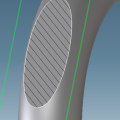Truncation is a search technique used in databases where the ending of a word is replaced by a symbol. This allows different forms of a word to be searched simultaneously and increases the number of search results found. When is it appropriate to use abbreviated versions of words? The type of publication and the context of the content determine the suitability of the truncated words. The action of shortening or cutting something is known as truncation. Consider the importance of sentence structure: short, simple sentences or truncated sentences can create tension, haste or urgency, while longer compound or complex sentences are slower and often appear in formal texts.
It is clear that it is reproduction, or reverting to the state that existed before the truncation of the edges. To understand the effects of a truncated sentence, extend it by adding the missing words and compare the extended version with the truncated one. Truncation is very useful when you know that one of your search terms has multiple endings, but all variations represent basically the same idea. Truncation is not possible when a foreign key references a table or tables are used in replication or with indexed views. Truncation is a symbol added to the end of the root of a word to tell the database to search for all forms of a word.
In poetry, truncation refers to omitting syllables at the beginning or end of a line. Using a short sentence gives more time for someone to pause and think about what is being said, creating a greater impact. Therefore, truncated sentences can be useful to clarify what is being said and draw attention to main points. Reinforce what is being said: A truncated sentence can place emphasis on a previous statement or sentence. Truncated sentences are often called short sentences, but there is a difference between short sentences and truncated sentences.
It is most often used to refer to shortening intangible things, such as a schedule or writing, since in The truncation of the last part was only done to stay within the word count, there was nothing wrong with it. Truncation may involve removing the beginning, end, top or other part of something. Don't use too many truncated sentences in a row, as this may seem unnatural and make someone feel like they are being bombarded. I totally agree that casualisms and truncated nouns not yet lexicalized should be rejected by careful writers; however, in novels and short stories where it is direct speech, it would be fine, since otherwise characters' speech may end up sounding forced or unnatural.











